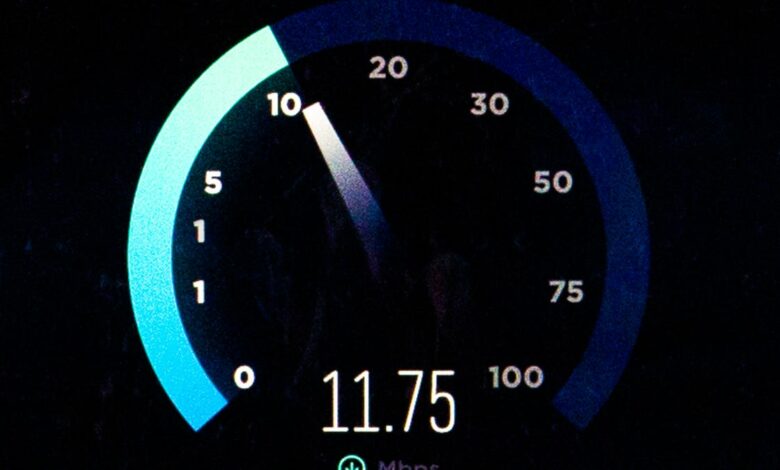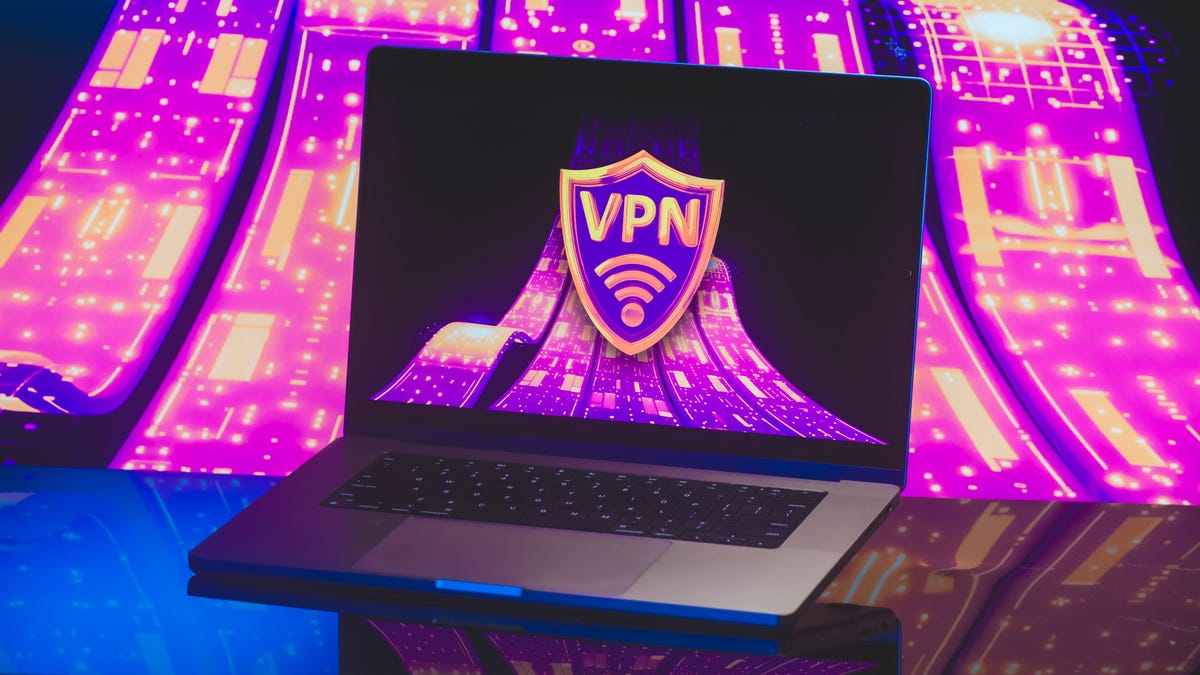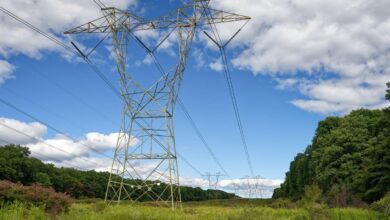Is Your VPN Crushing Your Internet Speeds? Here’s How to Fix It



VPNs, or virtual private networks, are great for protecting your privacy, but they do have a downside: they slow down your internet speed, often by 50% or more.
It is the nature of how vpns workand there is really no way to get around it. A VPN encrypted your internet traffic and routes your connection through a remote server. While this keeps your online activity private, this process is primarily responsible for the speed loss. It takes time to encrypt and decrypt your traffic and for your data to travel back and forth to the VPN server and back to your device. However, there are several things you can try if you want to achieve the fastest possible speeds with your VPN connection.

Other factors, such as the VPN protocol you use or the number of people using the same VPN server you connect to, can also contribute to the overall speed loss.
The speed drop can be virtually unnoticeable during normal internet use when you have a fast vpnBut you want all the speeds you can get for data-intensive activities like gaming, streaming, or video conferencing. A delay of even a few milliseconds can mean the difference between glory and failure in your online game. And slow VPN speeds can result in a ruined video streaming experience, marred by constant buffering and a hefty dose of pixelation. If you’re using a VPN on a Zoom call, for example, you’ll want to do everything you can to maximize your VPN speeds to ensure the call runs smoothly and doesn’t drop out.
If your VPN isn’t as fast as you’d like, here’s what you can do to speed up your connection.
Read more: The best VPNs, tested and reviewed
7 Ways to Improve Your VPN Speed
Connect to a server closer to your physical location
In general, the closer the VPN server is to your physical location, the faster your connection speeds should be. Your traffic will have to travel a shorter physical distance when it goes through a nearby VPN server rather than one on the other side of the world. If you’re in Boston, your VPN connection speeds should be much faster if you connect to a VPN server in New York City or Montreal than if you connect to a VPN server in, say, Sydney or Tokyo.
This isn’t always practical if, for example, you want to stream content from a specific country or access a gaming server from a specific location. But if you need a faster connection, try connecting to a few different VPN servers near where you’re physically located and see which ones give you the fastest speeds. Some VPNs have a speed test feature built into their apps, but you can always use a speed test website like Ookla Speed Test to check the speed of your connection.
If you’re looking for a VPN with a ton of server locations, try NordVPN. They offer servers in 111 different countries, so you’re bound to find a few that are relatively close to you.
Connect to a server that is not overloaded
When too many people use a single VPN server, the server can become overloaded and your connection speed can suffer. Some VPN providers display the current server load on their servers in the app itself or on their website. Choosing one with a lighter load will generally result in faster speeds. If your VPN provider doesn’t display the current load on its servers, try connecting to a few different ones to see which one gives you the fastest speeds. Sometimes it’s just a matter of trial and error.

Your VPN will slow down your connection speed, but you can try to minimize this effect.
Try connecting using a different VPN protocol
A VPN protocol is a set of instructions between the VPN app on your device and the VPN server that determines how the secure connection is established. There are several VPN protocols, and most providers give you the option to choose from a few different options depending on what platform you’re using. Different protocols have different pros and cons in terms of speed and security, so connecting via one VPN protocol instead of another may increase the speed of your VPN.
OpenVPN is currently the most tried and tested protocol, offering a nice combination of speed, stability, and security — but there are protocols that can deliver faster speeds. More VPN providers now offer newer VPN protocols like WireGuard or their own proprietary protocols — such as ExpressVPN’s Lightway and NordVPN’s NordLynx, which deliver blazing fast speeds combined with solid security.
Switching to one of these other protocols, if offered by your VPN provider, can give you faster connection speeds through your VPN. Be aware, however, that these protocols haven’t been tested as thoroughly in the wild as OpenVPN, so they shouldn’t be your first choice for critical VPN use.
If you prefer to use OpenVPN exclusively, use UDP instead of TCP for the best speeds. While TCP is typically the more stable option, it is typically slower than UDP because it has to send packets in the correct order and wait for an acknowledgement from the recipient before sending the next packet. UDP doesn’t worry about the order in which it sends packets or receiving an acknowledgement that they were received, so it is typically faster but less stable.
Most VPN apps will let you change the protocol you connect to in the settings, so experiment with the protocol settings to see which one gives you the fastest speeds.
Enable split tunneling if available
If your VPN provider offers a split tunneling feature, try enabling it to see if you can increase your VPN speeds. Split tunneling allows you to send only the traffic you want through your VPN connection, while sending the rest unencrypted over your regular internet connection.
For example, if you’re using your VPN to stream, you can only designate your streaming traffic to go through the VPN, which won’t slow down your online gaming. This can help optimize your VPN speeds for certain activities, as all the excess traffic you don’t need going through your VPN won’t be hogging your bandwidth.
Use a wired connection
A wired connection is typically faster than your Wi-Fi. Chances are, you have multiple devices connected to your home Wi-Fi network at the same time, all sharing resources and competing for the same wireless channels. This can result in an unstable internet connection and therefore slower speeds. If you have the right equipment, try making a wired connection by connecting your computer directly to your router with an Ethernet cable, then connecting to your VPN.
Close unnecessary apps running in the background
If you have apps running in the background that you aren’t using, they can take up resources on your machine and slow down your connection. Take a moment to see if there are any processes running in the background that you aren’t using and close those processes. By resolving potential bottlenecks like these, you may notice a faster connection.
Restart your router and other devices
When was the last time you rebooted your devices? Like all things, technology like your computer and router need a little R&R every now and then. When you reboot your computer, you give it a much-needed refresh, free up some RAM, and ensure it’s running at its best. So, as cliché as it sounds, try turning it off and back on and see how your VPN speeds improve as a result.




